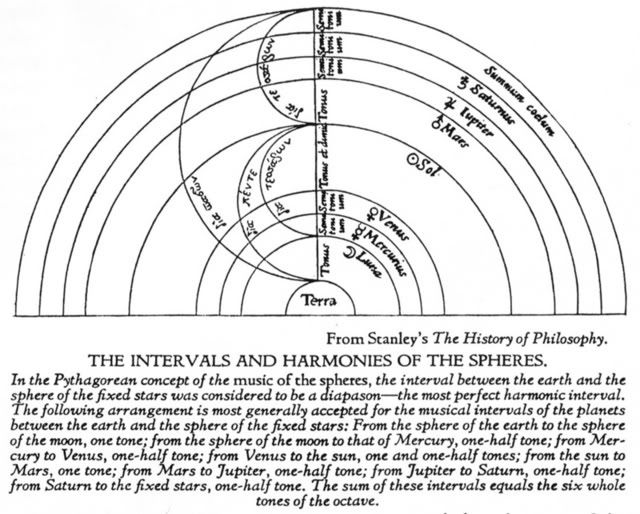|
|
Post by hollandr on Aug 27, 2008 22:50:39 GMT
>In the case of evidence AGAINST, one repeatedly encounters confessed hoaxers:
In the case of evidence FOR, one cannot prove a negative. In other words, the onus of proof is on those who assert the proposition.
This seems a rather black-white frame of reference.
In some situations realities seem to blur - as if there were parallel worlds or inner and outer realities interacting
I recall being lifted 18 inches vertically off the ground while seated in the mildest of breezes. How should I apply Occam's Razor to that?
Should I doubt my own experience in order not to disturb the beliefs of others?
|
|
|
|
Post by hollandr on Aug 27, 2008 23:55:41 GMT
I wonder what sort of influence could dampen the human race's well known curiousity? A plethora of more credible subjects. Well I wonder if that really explains the great effort expended to explain away such interesting matters I suspect there is another issue. I recall Velikovsky asserting that humans cling to the clockwork view of the solar system because they have an instinctive understanding that the solar system is irregular and dangerous and they do not wish to contemplate it |
|
|
|
Post by maat on Aug 28, 2008 0:07:41 GMT
Should I doubt my own experience in order not to disturb the beliefs of others? Me and my 'ghost' and I Maat |
|
|
|
Post by hollandr on Aug 28, 2008 0:54:16 GMT
>NO!
On the other hand those reluctant to disturb their beliefs find it easy to doubt the sanity of those with anomalous experiences
There might even be a profession based on that
|
|
Tamrin
Member
Nosce te ipsum
Posts: 3,586
|
Post by Tamrin on Aug 28, 2008 8:27:40 GMT
Should I doubt my own experience in order not to disturb the beliefs of others? |
|
Tamrin
Member
Nosce te ipsum
Posts: 3,586
|
Post by Tamrin on Aug 30, 2008 16:52:10 GMT
Never before have geometric theorems been linked with music. Curiously, Hawkins could find no reference to such a theorem in the works of Euclid or in any other book that he consulted." |
|
|
|
Post by hollandr on Aug 31, 2008 1:07:26 GMT
|
|
Tamrin
Member
Nosce te ipsum
Posts: 3,586
|
Post by Tamrin on Aug 31, 2008 1:25:22 GMT
Pythagoras & Music of the SpheresThere is geometry in the humming of the strings
... there is music in the spacing of the spheres.Dartmouth College, Mathematics Dept. (Geometry) (Excerpt) |
|
|
|
Post by hollandr on Sept 4, 2008 11:46:28 GMT
|
|
Tamrin
Member
Nosce te ipsum
Posts: 3,586
|
Post by Tamrin on Sept 4, 2008 11:54:41 GMT
Never before have geometric theorems been linked with music. |
|
|
|
Post by hollandr on Sept 4, 2008 20:23:08 GMT
>Never before have geometric theorems been linked with music.
I do not understand what you mean by geometry.
Try Euclid
|
|
Tamrin
Member
Nosce te ipsum
Posts: 3,586
|
Post by Tamrin on Sept 4, 2008 21:42:21 GMT
>Never before have geometric theorems been linked with music.
I do not understand what you mean by geometry. |
|
|
|
Post by hollandr on Sept 4, 2008 22:33:40 GMT
At the risk of stating the obvious the musical relationships of Pythagoras are based on relative masses not on geometry
Thus the anvils of various masses produced different notes
And because mass and weight are linearly related in this gravitational field it is possible to use the same mass ratios to provide weight tension on wires to produce notes
Then one can use constant masses and variable length wires to do the same thing
But this is not geometry. Geometry is literally the measuring of the planet. Hence it is spatial
Pythagoras' music is based on mass not space - in my view. You may have different view
|
|
Tamrin
Member
Nosce te ipsum
Posts: 3,586
|
Post by Tamrin on Sept 5, 2008 8:12:00 GMT
At the risk of stating the obvious the musical relationships of Pythagoras are based on relative masses not on geometry That's not all it looks like to me. If you insist upon music being outside the domain of geometry, If you insist upon music being outside the domain of geometry,
then your mate Hawkins is out in the cold with Pythagoras. |
|
|
|
Post by hollandr on Sept 5, 2008 8:44:14 GMT
I give up
|
|
|
|
Post by lauderdale on Sept 5, 2008 9:11:12 GMT
Russell, I did with him ages ago.  |
|
Tamrin
Member
Nosce te ipsum
Posts: 3,586
|
Post by Tamrin on Sept 5, 2008 9:25:26 GMT
Ahhh! Brothers all!
|
|
|
|
Post by corab on Sept 5, 2008 11:44:15 GMT
That's an interesting thought actually, Bro:. Tamrin -- the idea of the diapason.
It is commonly known that the Universe continually expands -- wouldn't that affect the perceived tonal ratios in the Pythagorean concept?
Note I'm not a mathematician by any stretch of the imagination, so keep it simple, please! ;D
|
|
Tamrin
Member
Nosce te ipsum
Posts: 3,586
|
Post by Tamrin on Sept 5, 2008 12:14:27 GMT
I suspect that would be like changes to a "constant", such as the speed of light, where all else is relative to it as a standard: There could be a change of the type described as the "red shift" (Doppler Effect). |
|

